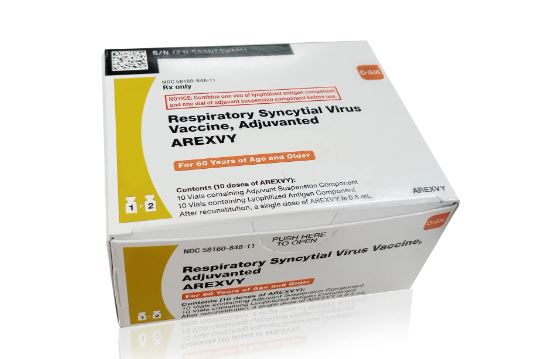In a recent announcement, federal health officials disclosed concerns regarding a potential association between respiratory syncytial virus (R.S.V.) vaccines and Guillain-Barré Syndrome (G.B.S.), a rare neurological condition. The Food and Drug Administration approved two R.S.V. vaccines, Abrysvo by Pfizer and Arexvy by GSK, in May 2023. However, subsequent surveillance data revealed a small number of G.B.S. cases following vaccination, prompting further investigation.
The reported incidence of G.B.S. after R.S.V. vaccination was low, estimated at approximately two cases per 100,000 vaccinated individuals or fewer. Nonetheless, health officials stressed the need for comprehensive data analysis to accurately assess the potential risk. Dr. Thomas Shimabukuro, director of the C.D.C.’s Immunization Safety Office, cautioned against drawing definitive conclusions from the preliminary findings, emphasizing the ongoing surveillance efforts to evaluate the magnitude of the risk.
Guillain-Barré Syndrome is a neurological disorder characterized by the immune system’s attack on nerves, which can lead to paralysis and, in severe cases, death. While most patients recover, the condition poses significant health risks. Experts underscored the importance of considering the absolute risk of G.B.S. in the context of vaccination benefits. Despite the observed cases, the overall incidence of G.B.S. remained rare, with an estimated one case per 40,000 doses administered.
Federal health officials highlighted the potential lifesaving benefits of R.S.V. vaccination, including the prevention of in-hospital deaths and outpatient visits. Despite the reported side effects, which were predominantly minor, concerns arose regarding the increased incidence of G.B.S. following vaccination. Notably, data from the Vaccine Adverse Event Reporting System identified a higher-than-expected number of G.B.S. cases associated with Abrysvo and Arexvy.
Preliminary reports indicated nearly three additional cases of G.B.S. per million doses of Abrysvo, while Arexvy exhibited an estimated 14 cases per million doses administered. Although these findings require further investigation, the data raised concerns within the medical community. Dr. Shimabukuro compared the observed rates to those associated with other vaccines, such as the shingles vaccine, emphasizing the need for comprehensive safety evaluations.
Additional data from the Centers for Medicare & Medicaid Services suggested a potential link between Abrysvo and an increased incidence of G.B.S. However, the limitations of the available data necessitate further analysis by regulatory authorities and vaccine manufacturers. GSK, the manufacturer of Arexvy, expressed its commitment to investigating any potential risk, highlighting the need for collaboration between stakeholders to ensure vaccine safety.
While rare cases of G.B.S. have been reported following other vaccines, including those for influenza and shingles, the association with R.S.V. vaccines warrants careful consideration. Notably, individuals with chronic conditions face increased susceptibility to severe R.S.V. infections, underscoring the importance of vaccination in high-risk populations.
As federal health officials continue to investigate the potential link between R.S.V. vaccines and G.B.S., ongoing surveillance and data analysis will be critical in informing public health recommendations. Despite the current uncertainties, efforts to ensure vaccine safety remain paramount in safeguarding public health.

